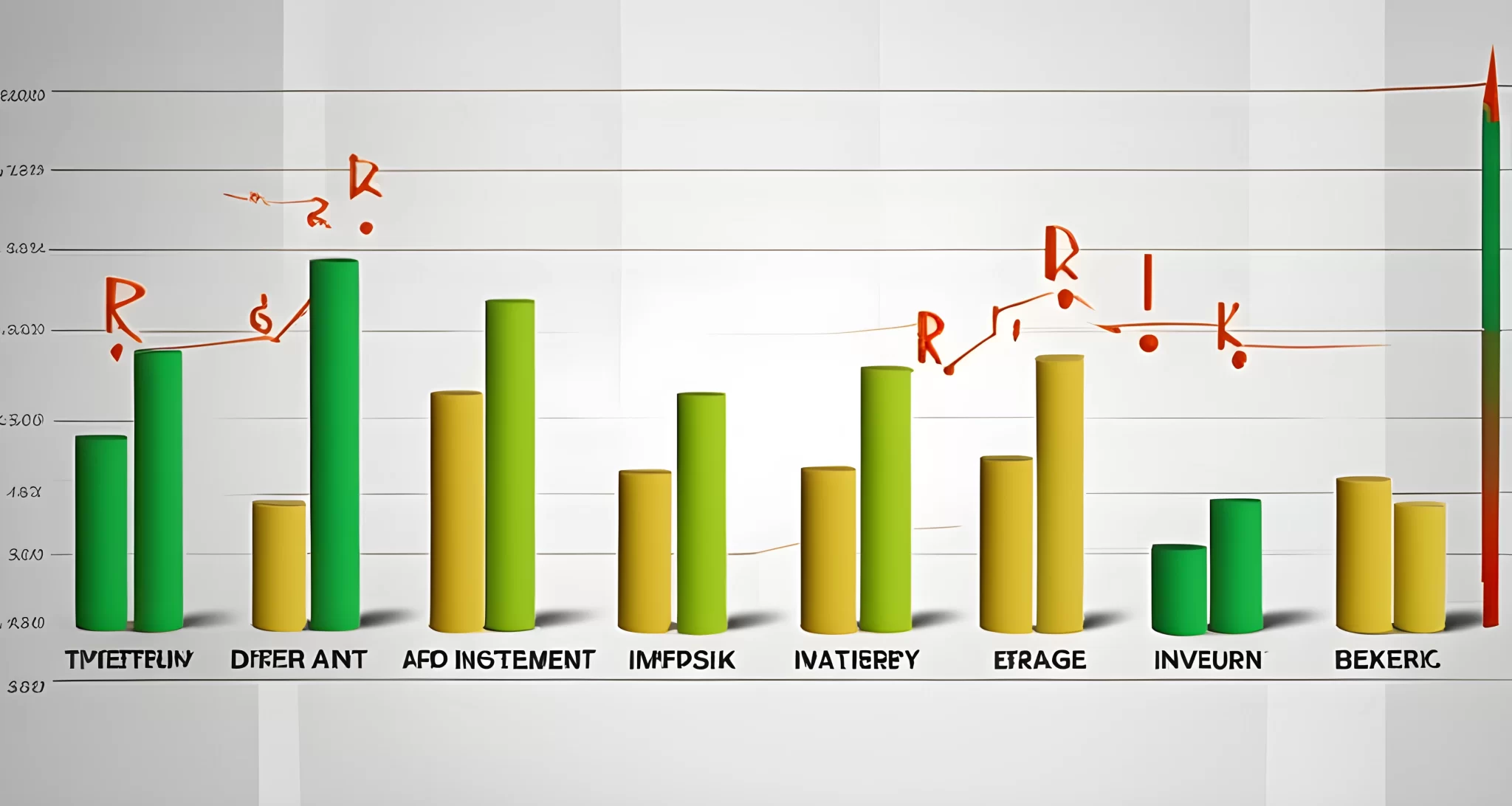The Importance of Financial Literacy
Financial literacy is crucial in investment planning as it empowers individuals to make informed decisions and navigate the investment world with confidence. It involves understanding various financial components and skills such as budgeting, investing, borrowing, taxation, and personal financial management.
Having a strong foundation in financial literacy allows individuals to be better prepared for specific financial roadblocks, reducing the chances of personal economic distress. This knowledge is essential for anyone looking to maximize their financial opportunities, especially beginners. By understanding the basics of personal finance, individuals can lay the groundwork for long-term success and stability.
Furthermore, being financially literate enables individuals to assess different investment options and understand the implications of each choice. With the Financial Success Beginners Tutorial, newcomers to the world of investing can gain valuable insights into how to make their money work for them.
Moreover, financial literacy also plays a crucial role in setting realistic goals. By understanding the principles of budgeting and personal finance management, individuals can set achievable targets and work towards them methodically. This ensures that their investment planning is aligned with their overall financial objectives.
Ultimately, financial literacy provides individuals with the tools and knowledge necessary to manage their personal finances effectively. It empowers them to make informed decisions about borrowing, investing, and taxation. This level of understanding is invaluable in today’s complex financial landscape.
In conclusion, the importance of financial literacy cannot be overstated when it comes to investment planning. It is a foundational skill that equips individuals with the knowledge and confidence to navigate the world of finance effectively. Whether you are just starting out or looking to enhance your existing knowledge, developing financial literacy is a crucial step towards achieving your long-term financial goals.

Understanding Investment Options
When it comes to investment planning, having a strong understanding of various investment options is crucial. Financial literacy plays a key role in helping individuals comprehend the diverse range of investment vehicles available to them. This knowledge empowers individuals to make informed decisions about where to allocate their hard-earned money.
Investment options can include stocks, bonds, mutual funds, real estate, and retirement accounts such as 401(k)s and IRAs. Each of these options carries its own level of risk and potential for return. Understanding the intricacies of these investment options is essential for making sound investment decisions.
Individuals with a high level of financial literacy are able to evaluate the alignment of these investment options with their personal goals and risk tolerance. They can assess which investments are best suited for their individual financial situations.
In addition, financial literacy helps individuals assess the potential risks associated with different investment opportunities. By understanding the risks involved, individuals can make more informed decisions and balance risk and reward according to their personal circumstances.
Furthermore, being financially literate allows individuals to analyze market trends and make strategic investment choices. They can identify opportunities for growth and understand how different market conditions may impact their investments.
Finally, financial literacy is essential for managing personal finances effectively. It enables individuals to make sound financial decisions that align with their long-term goals and aspirations.
It is important to note that financial literacy is not always readily accessible to everyone. Efforts to address financial literacy in schools Financial literacy in schools play a crucial role in ensuring that future generations are equipped with the knowledge and skills necessary to navigate the complex world of investment planning.
Overall, understanding investment options is a fundamental aspect of financial literacy that empowers individuals to make informed decisions and secure their financial futures.

Assessing Risk and Return
When it comes to investment planning, assessing risk and return is crucial for making informed decisions. Understanding the power of compounding, long-term planning, and the importance of regular contributions can help financially literate individuals achieve their desired financial milestones. By interpreting market trends, economic indicators, and financial news effectively, they can make more informed investment decisions and spot potential opportunities.
Assessing risk involves understanding the potential for loss in an investment. Individuals need to consider factors such as market volatility, economic stability, and industry-specific risks when evaluating investment options. By having a clear understanding of risk, investors can make strategic decisions that align with their financial goals.
On the other hand, assessing return involves analyzing the potential gains from an investment. Investors should consider factors such as historical performance, projected earnings, and market conditions when evaluating the potential return on an investment. By assessing return, individuals can determine whether an investment aligns with their long-term financial objectives.
Ultimately, financially literate individuals are able to strike a balance between risk and return by utilizing various investment options. They can make well-informed decisions based on their risk tolerance, financial goals, and market knowledge. Moreover, they can maximize their investment returns through strategic planning.
By utilizing effective return strategy planning Effective return strategy planning, investors can optimize their portfolio and enhance their overall investment performance. This involves diversifying assets, rebalancing portfolios regularly, and staying informed about market developments. With a strategic approach to assessing risk and return, financially literate individuals can make the most of their investment opportunities while managing potential drawbacks effectively.

Setting Realistic Goals
When it comes to investment planning, setting realistic goals is a crucial step in ensuring long-term financial success. Without clear objectives in mind, it can be easy to make hasty or uninformed decisions that may not align with your overall financial strategy.
Financial literacy encompasses a broader understanding of personal finance management, including budgeting, saving, and debt management. These skills are essential foundations for building a solid financial base, which, in turn, supports sound investment decision-making.
Importance of Setting Realistic Goals
Setting realistic goals involves assessing your current financial situation and determining what you want to achieve through investing. This can include factors such as retirement planning, saving for a major purchase, or building wealth over time. By understanding your objectives, you can tailor your investment strategy to align with your specific needs and risk tolerance.
Connecting Financial Literacy to Goal Setting
Understanding the various investment options available is crucial in setting realistic goals. It’s important to have a clear understanding of the potential risks and returns associated with each investment vehicle. This knowledge allows you to make informed decisions that align with your overall financial goals.
For example, by educating yourself on common misconceptions surrounding investments Investment Misconceptions Addressed, you can avoid making decisions based on false assumptions and focus on strategies that are more likely to help you achieve your financial objectives.
Budgeting and Debt Management
Effective goal setting also involves budgeting and debt management. By developing a clear understanding of your income, expenses, and debt obligations, you can create a realistic plan for achieving your investment goals without jeopardizing your overall financial stability.
In conclusion, financial literacy plays a vital role in setting realistic investment goals. By gaining a comprehensive understanding of personal finance management and investment options, individuals can make informed decisions that align with their specific objectives. With the right knowledge and a well-defined plan in place, investors can work towards building a secure financial future.

Managing Personal Finances
Financial literacy plays a crucial role in managing personal finances. It provides individuals with the knowledge and skills to create and maintain a budget, track expenses, and effectively plan for the future. By understanding investment options and assessing risk and return, individuals can make informed decisions about where to allocate their resources for long-term financial stability.
One key aspect of managing personal finances is creating a budget. Understanding how to effectively budget income and expenses is essential for achieving financial goals and avoiding unnecessary debt. With proper financial literacy, individuals can learn to prioritize spending, save for emergencies, and invest for the future.
Additionally, financial literacy empowers individuals to track expenses and identify areas where they can cut costs or reallocate funds towards more productive investments. This level of awareness allows for greater control over personal finances and reduces the likelihood of overspending or falling into financial hardship.
Moreover, having a clear understanding of risk and return enables individuals to manage their investments more effectively. With realistic goals in mind, individuals can make informed decisions about where to allocate their resources based on their risk tolerance and desired level of return on investment. This can lead to more successful investment strategies and greater long-term financial security.
In summary, financial literacy is crucial for effectively managing personal finances. By understanding investment options, assessing risk and return, setting realistic goals, and creating a solid financial plan, individuals can navigate the complex world of finance with confidence. This ultimately reduces the likelihood of personal economic distress and sets the stage for a financially secure future.
For further insights into the importance of conducting effective financial analysis in investment planning, read Effective Financial Analysis Importance.
FAQ
Why is financial literacy crucial in investment planning?
Financial literacy is crucial in investment planning as it empowers individuals to make informed decisions and navigate the investment world with confidence. it involves understanding various financial components and skills such as budgeting, investing, borrowing, taxation, and personal financial management.
What does financial literacy help with in investment planning?
In investment planning, financial literacy is essential for understanding investment options, assessing risk and return, setting realistic goals, analyzing market trends, and managing personal finances. it helps individuals comprehend the various investment vehicles available to them and evaluate their alignment with personal goals and risk tolerance.
How does financial literacy help with achieving financial milestones?
By understanding the power of compounding, long-term planning, and the importance of regular contributions, financially literate individuals can achieve their desired financial milestones. they can interpret market trends, economic indicators, and financial news effectively, making more informed investment decisions and spotting potential opportunities.
Is financial literacy only important for investment planning?
No, financial literacy encompasses a broader understanding of personal finance management, including budgeting, saving, and debt management. these skills are essential foundations for building a solid financial base, which, in turn, supports sound investment decision-making.
